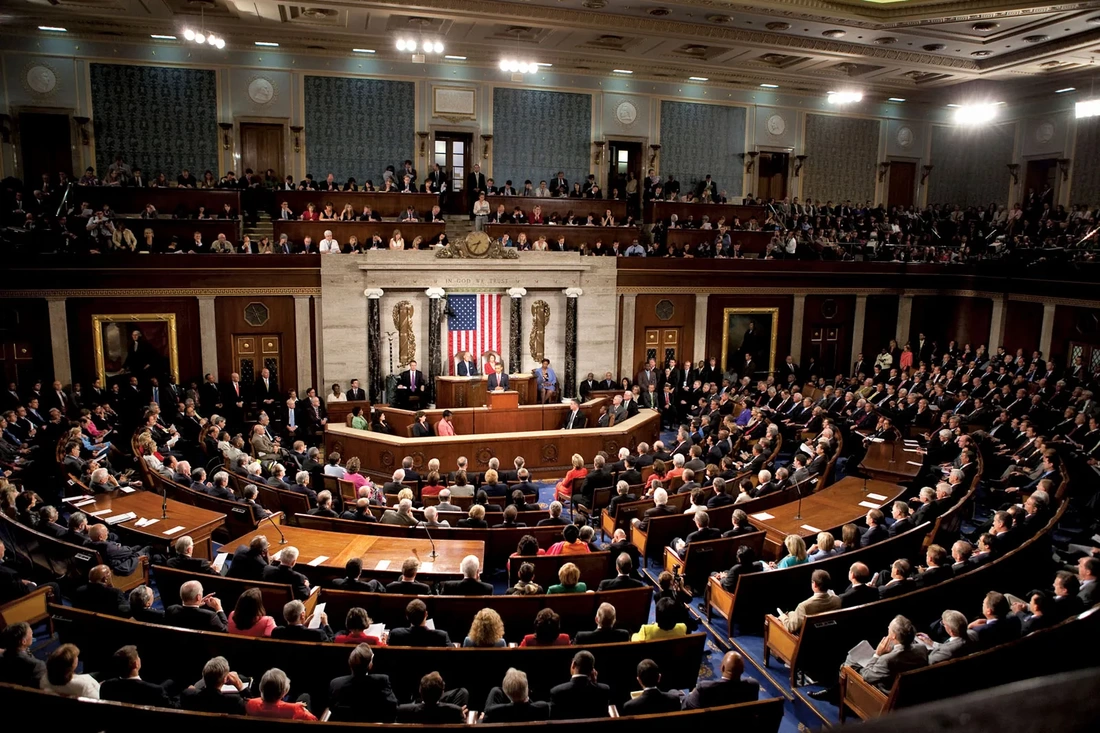|
Recently, I had the great fortune to sit with Mark Banicevich, a business leader, to record a set of three fireside chats for his Governance Bites series. Mark was keen to get my take on several topical aspects of boards and governance. The first of the three conversations is now available to watch. (The second and third conversations in the series will be posted in April and May.) In this conversation, we explored board work in various jurisdictions, noting differences and similarities along the way. While a 20-minute whistle-stop conversation is hardly sufficient to do the task justice, I do hope it encourages you to explore further, and is a catalyst for some conversations. And, may I ask... is the commentary helpful or not? What do you agree or disagree with? I'd be glad to hear your thoughts, either in the comments section below, or directly, if you prefer.
0 Comments
News has emerged in recent days that the United States House of Representatives is moribund—all for the lack of a Speaker. The Speaker is the person who presides over the House; they are, in effect, the administrative head. But for several weeks now, the House has been without a Speaker—since Kevin McCarthy was removed on 3 October by a motion to vacate. The move, which was unprecedented, has left the House in a precarious position. While several replacements have been considered, none have been appointed. And, without a Speaker, the business of the House cannot proceed. This includes appropriations, to cover expenditure on 'projects' such as the Hamas–Israeli conflict and the Ukraine war. The situation highlights a stark weakness in the system, whereby the US Government system has a single point of failure baked in. Imagine the outcry if a company's decision-making processes stalled, for the lack of a board chair or an unexpected vacancy in the CEO role. Staff, customers, suppliers and shareholders would be upset, and rightly so. The potential for reputational damage would be high as well. Smart companies anticipate such problems by thinking ahead; they appoint deputies and establish succession plans and delegation frameworks to be activated in the event the chair, CEO or key leader is unavailable or unable to serve. And so to the core question: Does your company have appropriate succession and delegations in place, to ensure decision-making continuity when a key leader cannot contribute? If so, that is great. But if not, now might be a good time to put things in order.
I’ve been holidaying in Scotland this week, the first of two in the Highlands after whistle-stop visits to Edinburgh and Glasgow. I prefer the countryside over cities, the wide-open spaces and the scenery. The vistas in Scotland are especially magnificent, especially if the weather is fine, which it has been this week. Today, I saw the Jacobite Steam Train in action as it crossed the famous Glenfinnian Viaduct—well almost in action, for the chance of a wayward spark starting a fire in the adjacent bracken has limited this famous tourist experience to a push-me pull-you configuration with a heritage diesel locomotive bringing up the rear. The question, in my mind and the minds of others witnessing the viaduct crossing, was, “Which locomotive is actually doing all the work?” Or, more plainly, what is driving what? From the picture, the answer is not immediately obvious. However, the very presence of the diesel locomotive provides an important clue. And so it was. Today, the Jacobite Steam Train excursion was, in fact, the Jacobite Steam Train experience, powered by diesel. The visual imagery provides a powerful analogy for something else I saw today; a press release issued by the Institute of Directors entitled, “ESG must not neglect governance!” The headline implies that governance (from the Greek, meaning to steer, to guide, to pilot) is little more than a component of ESG (a means of measuring corporate performance). This, despite governance being the term that describes the work of the board of directors (the means by which companies are directed and controlled). But, reading on, the situation is not quite as it first seemed. Dr. Roger Barker, head of the policy unit, acknowledged the importance of boards taking non-financial (so-called, ESG) factors into account when making decisions. But he also noted the emergence of an “ESG industry” that has started to control various agendas, with little interest in the enduring performance of the company. And, with it, boards are being subordinated to a lesser role. Barker issued a strong call: to subsume governance within ESG may well result in the important work of the board in driving business performance becoming neglected. Bravo, Dr. Barker! This is exactly what institutions need to be telling their members and others interested in corporate performance: ESG is a measurement and reporting mechanism, no more and no less. The board of directors is duty-bound to ensure the performance of the company, now and into the future, a high calling. If it is to discharge its duties well, the board needs to remain in control, driving the agenda. In doing so, the board should consider various externalities including social and environmental factors), of course, but it should not be beholden to them or to those applying the pressure.
The practice of corporate governance has garnered much attention over the past couple of decades; curiosity about boards growing each time news of a corporate failure and serious misstep becomes public. While those with axes to grind are quick to jump on their hobbyhorses, failure studies indicate that suggestions of hubris, malfeasance, narcissism, ineptitude, incompetence and poor engagement are not without basis. More recently, a wider group of so-called stakeholders and claimants have raised their voices, arguing that companies are having a negative effect on a range of social and environmental concerns. The ESG initiative, established in 2005 to put pressure on boards to report their activities and performance more fully, has become a movement (even an industry for personal and professional gain in the eyes of some). On the weight of evidence presented in the media, it would be easy to conclude that practices of companies, and the system that underlies modern commerce—capitalism—are detrimental to sustainable life and wellbeing. Firing shots at boards and companies is easy, because they are visible and command media attention. But are such responses justified? What if the assumptions and motivations that underpin investor, regulator and activist critiques are flawed, or the bases for regulatory interventions ill-advised? Some companies deserve criticism, of course. They should be called out and held to account. But many (most) operate within their means. Unsurprisingly, the boards of some reputable companies are reportedly pushing back on the expectations of some institutional investors, which, they say, have become over-prescriptive and formulaic. Alongside, some boards say new disclosure reporting rules being introduced, by the FSB Task Force on Climate-related Financial Disclosures (TCFD) amongst others, are counterproductive—for they add costs without any apparent benefit. Together, this begs an awkward question: Are the actions of some, who claim to be acting in the name of sustainability and a fairer society, actually an attempt to exert power and control for their own purposes? And, if so, are current attempts to establish regulations to enforce certain practices on companies reasonable or are they a bridge too far? It is little wonder that relationships between some boards and shareholders are starting to fracture, and society is becoming tribal.
|
SearchMusingsThoughts on corporate governance, strategy and boardcraft; our place in the world; and other topics that catch my attention. Categories
All
Archives
May 2024
|
|
Dr. Peter Crow, CMInstD
|
© Copyright 2001-2024 | Terms of use & privacy
|




